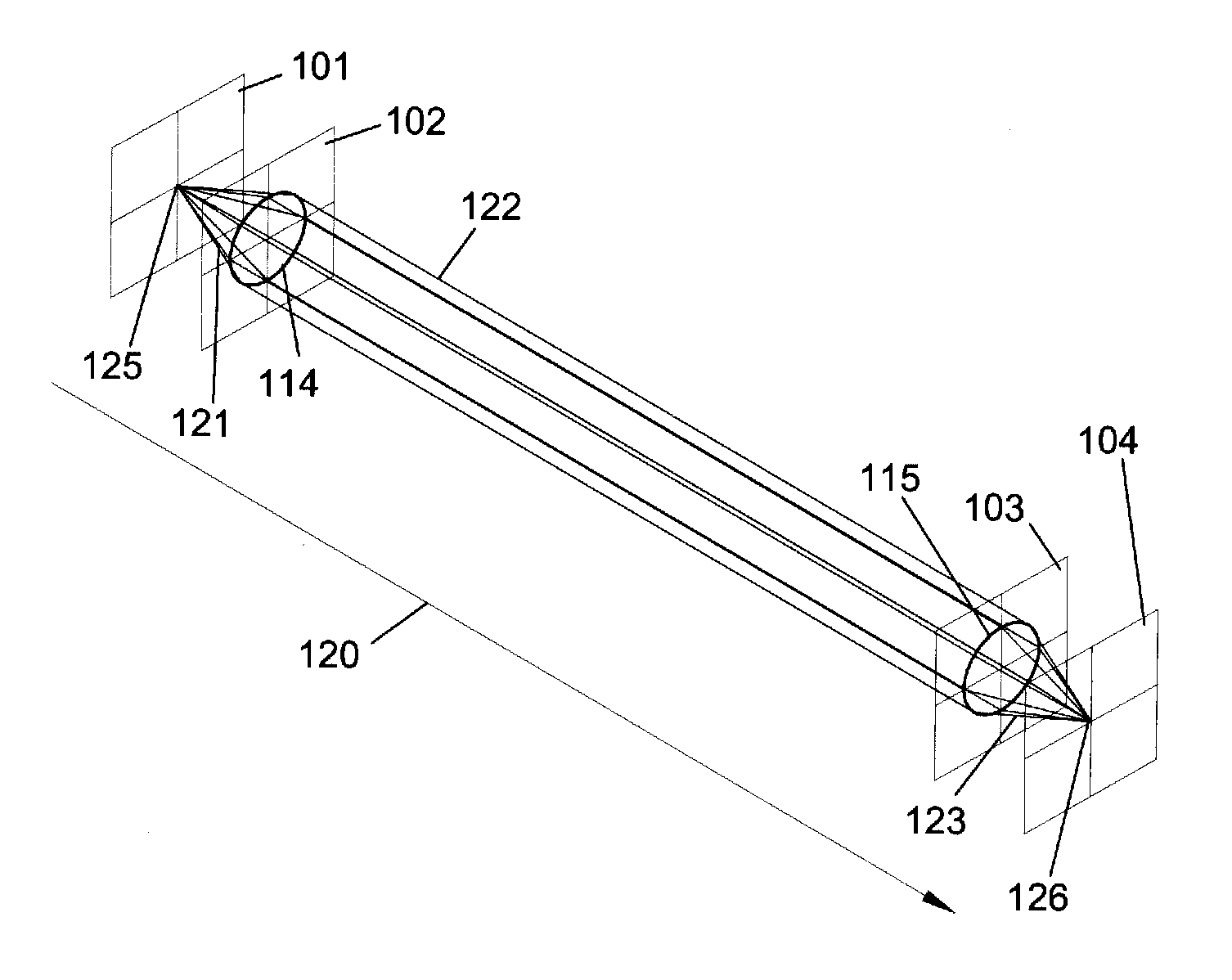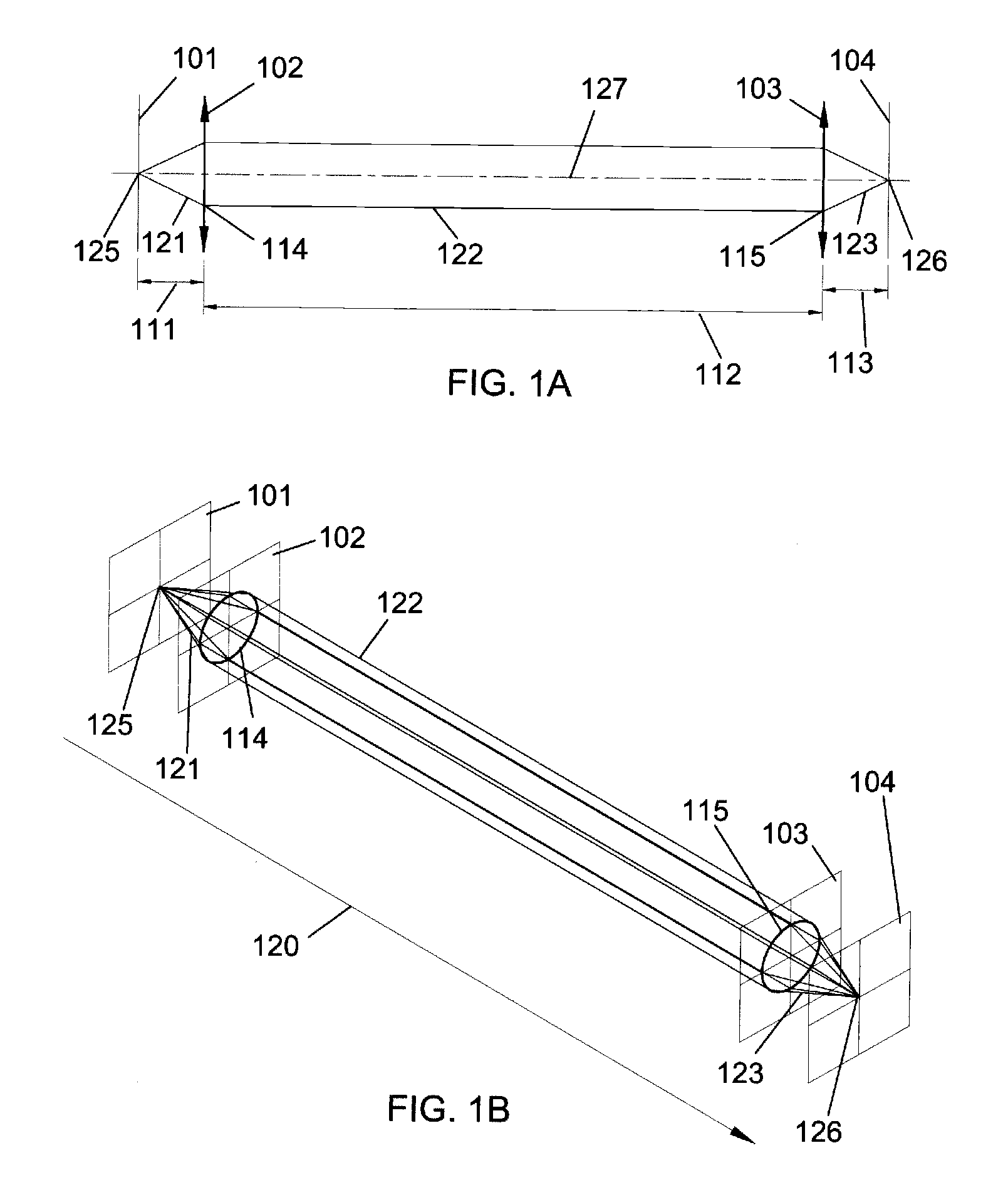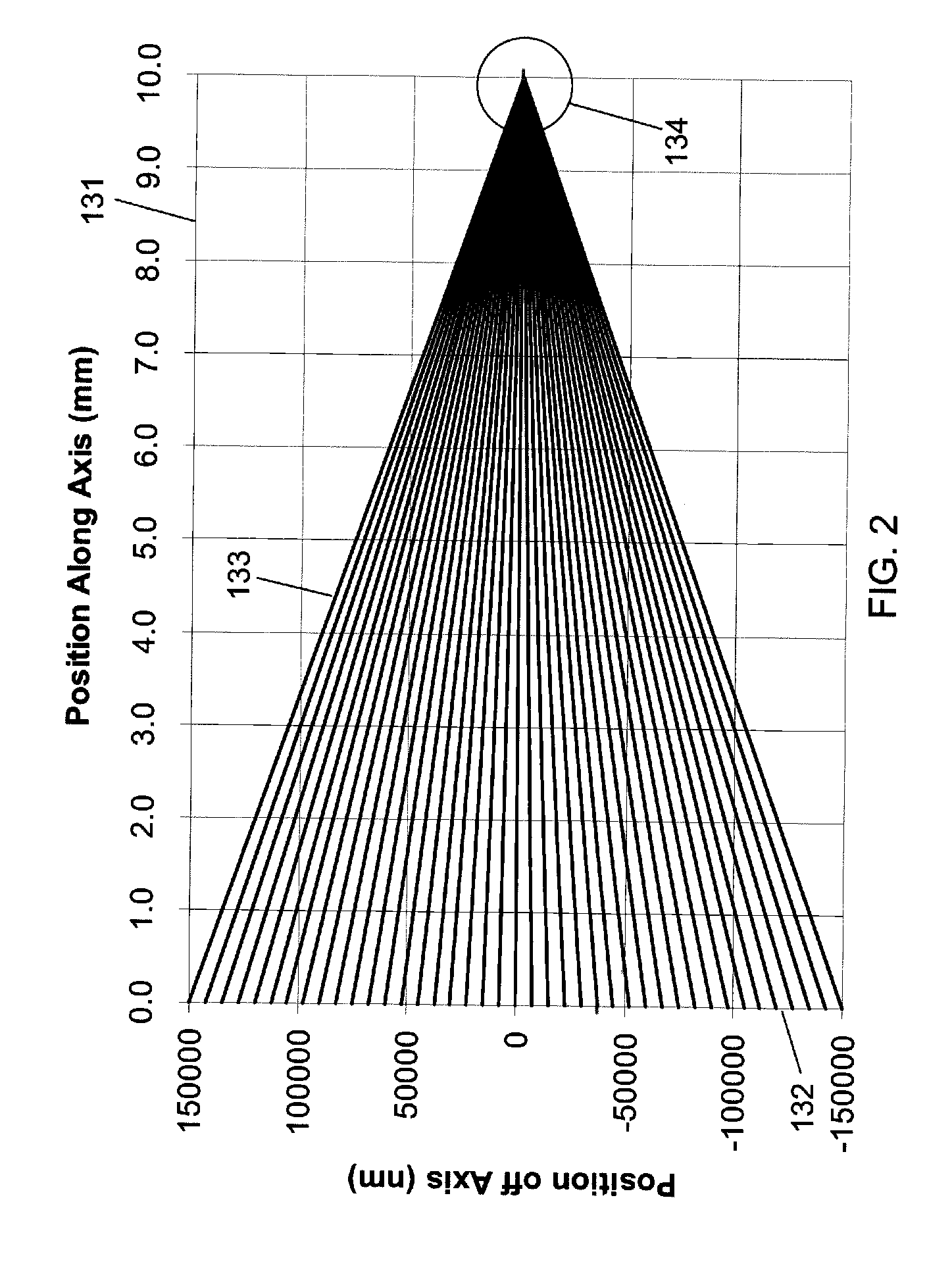Charged particle optics with azimuthally-varying third-order aberrations for generation of shaped beams
a technology of charged particles and aberrations, applied in the field of charged particle optics, can solve the problems of greater complexity and cost, and achieve the effect of simplifying the optical system
- Summary
- Abstract
- Description
- Claims
- Application Information
AI Technical Summary
Benefits of technology
Problems solved by technology
Method used
Image
Examples
first embodiment
[0076]FIG. 6 shows a schematic side view of a first embodiment of the present invention. Electrons 218 are emitted from electron source 215 in object plane 201, which can be a thermionic source, a LaB6 emitter, a cold field emitter, a Schottky emitter, or other type of electron source as is familiar to those skilled in the art. The particular type of electron source is not part of the present invention. Gun lens 202 (with focal length 211) focuses electrons 218 into an approximately parallel electron beam 219 which passes down the column a distance 212 before reaching octupole 203. Octupole 203 may be implemented in the column using an element with 8N poles, where N=1 (an octupole), 2 (a 16-pole), . . . as is familiar to those skilled in the art. FIG. 7 shows a view of a 16-pole element (N=2). The excitation of octupole 203 is discussed in FIG. 7. Trajectories leaving octupole 203 pass a distance 213 down the column, reaching objective lens 204 (with focal length 214) which focuses ...
second embodiment
[0085]FIGS. 12A-21 illustrate a second embodiment of the present invention. Table IV shows a comparison of the relative advantages and disadvantages of the first and second embodiments of the present invention. The second embodiment utilizes four elements 1203-1206, as shown in FIGS. 12A-B between the gun lens 1202 and the objective lens 1207. Elements 1203-1206 may be implemented using either 16-poles as in FIG. 7, or 8-poles as in FIG. 8.
[0086]FIG. 12A shows a schematic side view of a second embodiment of the present invention in a plane containing two lines: a) a line midway between the +X-axis and +Y-axis, and b) the Z-axis=the optical axis−hereinafter this plane will be referred to as the (+X+Y)−Z plane. FIG. 12B shows a schematic side view of a second embodiment of the present invention in a plane containing two lines: a) a line between the −X-axis and +Y-axis, and b) the Z-axis=the optical axis−hereinafter this plane will be referred to as the (−X+Y)−Z plane. Note that this p...
PUM
 Login to View More
Login to View More Abstract
Description
Claims
Application Information
 Login to View More
Login to View More - R&D
- Intellectual Property
- Life Sciences
- Materials
- Tech Scout
- Unparalleled Data Quality
- Higher Quality Content
- 60% Fewer Hallucinations
Browse by: Latest US Patents, China's latest patents, Technical Efficacy Thesaurus, Application Domain, Technology Topic, Popular Technical Reports.
© 2025 PatSnap. All rights reserved.Legal|Privacy policy|Modern Slavery Act Transparency Statement|Sitemap|About US| Contact US: help@patsnap.com



